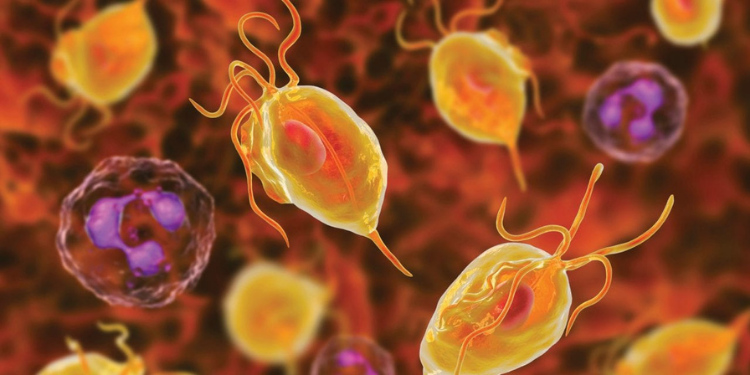Trichomoniasis – Symptoms, Causes and Treatment

Trichomoniasis, commonly shortened as trich, is a common sexually transmitted infection affecting millions of persons. Most people infected with trich remain unaware of the infection, but you can easily diagnose trich with appropriate testing, and it is easy to treat.
Table of Contents
ToggleSymptoms of trich
In most cases, trich infection does not present symptoms. Only about one in four infected persons show symptoms. In the few cases where symptoms show, they occur after 5 – 28 days of getting infected. Sometimes, trich symptoms take longer to appear.
People with vagina experience the following trich symptoms;
- Genital burning and itching
- Genital redness and swelling
- Frequent urge to urinate
- Vaginal bleeding and spotting
- Pain during urination and sexual intercourse
- Yellowish, greyish, whitish or greenish vaginal discharge
Symptoms in people with penis include:
- Urethral discharge
- Frequent urge to urinate
- Burning sensation during urination or after ejaculation
Causes of trich
Trichinfection occurs from contracting Trichomonas vaginalis,a one-celled protozoan. You can contract this infection through sexual intercourse or sharing sex toys with an infected person.
Trich can cause vaginal or urethral infection in women. In some cases, the trichinfection affects both the vagina and urethra. In men, it causes only urethral infection. If you are infected, you can easily transmit the infection to your sex partner through unprotected sex.
You cannot contract trich through regular physical contacts like hugging, kissing, sharing toilet seats and dishes with an infected person or any sexual contact that doesn’t involve the genitals.
Trich risk factors
Trich usually affects more women than men. More than two million women between 14 – 49 years have trich, but the infection is more common in older people with vaginas. Recent research found that more people older than 50 years had trich.
An increased risk of contracting trich occurs in:
- People with several sex partners
- People who have had other STIs
- People who have unprotected sex
- Those who have had trich infections in the past
Diagnosis of trich
Trichsymptoms are similar to other STIs, sohaving symptoms alone is not sufficient to diagnose trich. If you show symptoms common with trich, visit your doctor for a physical exam and testing.
The following tests can help diagnose trich;
- Trichomonas DNA test
- Antigen testswhere antibodies produced by the body bind to trich, leading to a colour change
- Microscopic examination of vagina fluid, urethral discharge and urine
Treatment of trich
Antibiotics can treat trich. Doctors usually prescribe metronidazole or tinidazolefor trich infection. During the treatment, avoid alcohol within the first 24 and 72 hours after taking metronidazole and tinidazole, respectively – it can cause nausea and vomiting. If you have trich, ensure your sex partner gets tested and receives treatment if necessary, even if your partner shows no symptoms. You also need to avoid sex during your treatment and about a week after the treatment.
Effects of trich
Untreated trich can cause different health issues, but trich can clear off within a week with the proper treatment. You can get re-infected after treatment if you have a new partner with trich or your partners did not treat trich.
You can reduce your risk of contracting trich by ensuring your sex partner gets treated for trich and avoid sex until you are sure your infection has cleared off. Usually, it takes one week to resume sexual activities.Ensure you visit your doctor for a follow-up test three months after your treatment.
Re-acquisition of trich may be a result of trichresistance to some medications. In women, the rate of re-acquisition is 17%. Some tests are available after two weeks of treatment to check if the trich infection has cleared.
Complications of Trich
Trich infection increases the risk of contracting other STIs. Trich results in genital inflammation,which increases the chances of transmitting and contracting HIV. STIs such as chlamydia, gonorrhoea and vaginosis usually occur alongside trich.
Untreated STIs, such as trich,may result in pelvic inflammatory disease (PID),and PID may lead to these complications;
- Chronic abdominal or pelvic pain
- Infertility
- Blockage of the fallopian tube resulting from scar tissue
Trichomoniasis and pregnancy
Trich causes certain complications in pregnant women, such as the increased risk of premature delivery and low birth weight. In rare cases, babies get trich during delivery.
Tinidazole and metronidazole have no known complication in pregnant women, so infected pregnant women can get treatment for trich. If you are pregnant and feel you have trich, contact your healthcare provider immediately to avoid complications for you and the baby.
Prevention of Trich
Abstinence from sexual activity is the only way to prevent trich and other STIs completely. Still, you can reduce the risk of contracting STIs by using a latex condom and other barrier methods during sexual intercourse.
If you show symptoms of trich or had sexual contact with an infected person, click here to schedule an appointment online with a sexual health doctor for testing and treatment if necessary.
Alice Christina, a seasoned health writer, combines her passion for wellness with a strong foundation in evidence-based research. She crafts insightful content that empowers readers to make informed health decisions. Alice's expertise shines through her concise and reliable health articles.
Recommended For You
Spread the loveSexual health is an essential aspect of personal well-being. If you’re based in London and need STI testing,
Spread the loveIn today’s fast-paced world, managing your health effectively is more important than ever – especially for those of
Spread the loveThe EGFR blood test is an important way to check how well the kidneys are working. It checks



